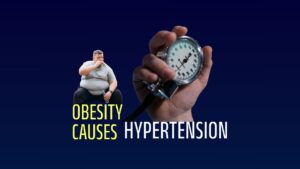
Vidhi Dave
Bariatric Dietician & Content Writer
Bariatric Surgery: Following Your Path, Not Society's Expectations

In a culture that frequently uses a discriminatory and judgemental lens on those who suffer with obesity, the choice to seek bariatric surgery can be met with a chorus of opinions and the social stigmatization of the individual by society. When it comes to our health and well-being, though, should we let the prejudices of society dictate the decisions we make?
Fats and its Function
Fat can be found in many different parts of the body, including behind the eyeballs, behind the nerves and bones, surrounding the heart and blood arteries, and even inside the eyeballs themselves. We cannot function or stay alive without it. “Think of fat as a mastermind that lives in our bodies,”
When we are deprived of access to food for a lengthy period of time, however, fat becomes a significant source of stored energy. There are not just fat cells but also nerve cells, immunological cells, and connective tissue included inside the matrix of body fat, which is also referred to as adipose tissue.
Fatty tissue secretes hormones that control metabolism and hunger (such as leptin and adiponectin), as well as hormones that affect insulin sensitivity (such as tumor necrosis factor-alpha and interleukin-6). These hormones are important in maintaining a healthy body weight.
Macrophages, neutrophils, and eosinophils are some of the immune cells that can be found in adipose tissue. These immune cells have a role to play in inflammation, either as anti-inflammatory or as pro-inflammatory agents. In addition to this, steroid hormones and immune system proteins are both produced by fat cells, as are the enzymes necessary for their production.
But as we all know, anything that is within reach has the potential to cause harm.
It should come as no surprise that we do not like the presence of fat on our bodies, particularly when it concentrates in certain areas such as the thighs or the stomach. Additionally, excessive fat might have a negative impact on our bodies.
What Kind of Effects Does Excess Fat Have on the Body?
Inflammatory response
Saving extra energy is made possible by fat. When we consume more calories than we burn, our bodies transform these extra calories into usable energy, which is then stored in fat cells. On the other hand, as our fat cells continue to mature and proliferate, they start to pollute the body and cause problems.
“As fat cells get stretched out, they send signals to the rest of the body that causes an inflammatory reaction,”
Imagine that each adipose tissue cell is a balloon. If there isn’t much air in the balloon, the balloon won’t be under as much pressure and is less likely to burst. When there is an excessive amount of air or water inside the balloon, it will stretch and may begin to leak. As they expand, fat cells experience the same kind of stretching that a balloon does. They are able to produce substances that lead to inflammation as well as a range of other health issues.
Estrogen Levels That Are Slightly Higher
Inflammation is a factor in the development of hypertension as well as other disorders associated with fat. Obesity is connected to estrogen-sensitive malignancies such as breast cancer and uterine cancer. Fat cells can also contribute to increased estrogen synthesis in the body, which is one reason why obesity is linked to these diseases.
Increased need for food
The effect that fat has on our hormones might even cause us to feel hungry. Leptin is a hormone that’s stored in our fat and it informs our brain that we’re no longer hungry. When we reduce the amount of fat that we carry, our bodies create less leptin. Because of this, we experience an increase in hunger as our bodies work harder to replace the energy that is lost when fat is burned.
The struggle with obesity is different for every individual. It is of the utmost importance to respect a person’s freedom of choice, as well as their freedom to make educated decisions regarding their own health. The decision to undergo bariatric surgery is one that should be taken by the individual struggling with obesity along with their bariatric surgeon, rather than being determined by the opinions of others in the society.
People who have undergone bariatric surgery and are willing to share their stories can inspire others who are going through something similar. They have the potential to contribute to the reduction of social stigma and the promotion of a view of obesity and its treatment alternatives that is more sympathetic and well-informed.
Individuals should not let beliefs and preconceptions of society prevent them from pursuing a course of action that has the potential to lead to improvements in their health, well-being, and general quality of life. Rejecting prejudice is a first step toward a more comprehensive and sympathetic understanding of obesity and its treatments, which will improve the lives of many people.
Individuals who are recovering from bariatric surgery may find that their lives are profoundly altered via their practice of yoga. Even though it might not be the primary contributor to weight loss following surgery, it does offer a wide variety of additional benefits that are extremely beneficial. Individuals are able to improve their physical, mental, and social well-being via the practice of yoga.
It brings about a state of calm, reduces levels of tension, and encourages more mindful eating practices. Individuals have the ability to take a more holistic view of their health journey via the practice of yoga, which contributes to general wellness and self-care. It is therefore impossible to overestimate how beneficial it is to a person’s general quality of life, despite the fact that it may not be an effective strategy for weight loss.
Aastha Bariatric is a best & top bariatric center in Mumbai. Bariatric surgeon & his team helps to keep up with good health post bariatric surgery. One can get personalized guidance on your post-operative diet, including when to eat and what foods to include at each stage of recovery.





